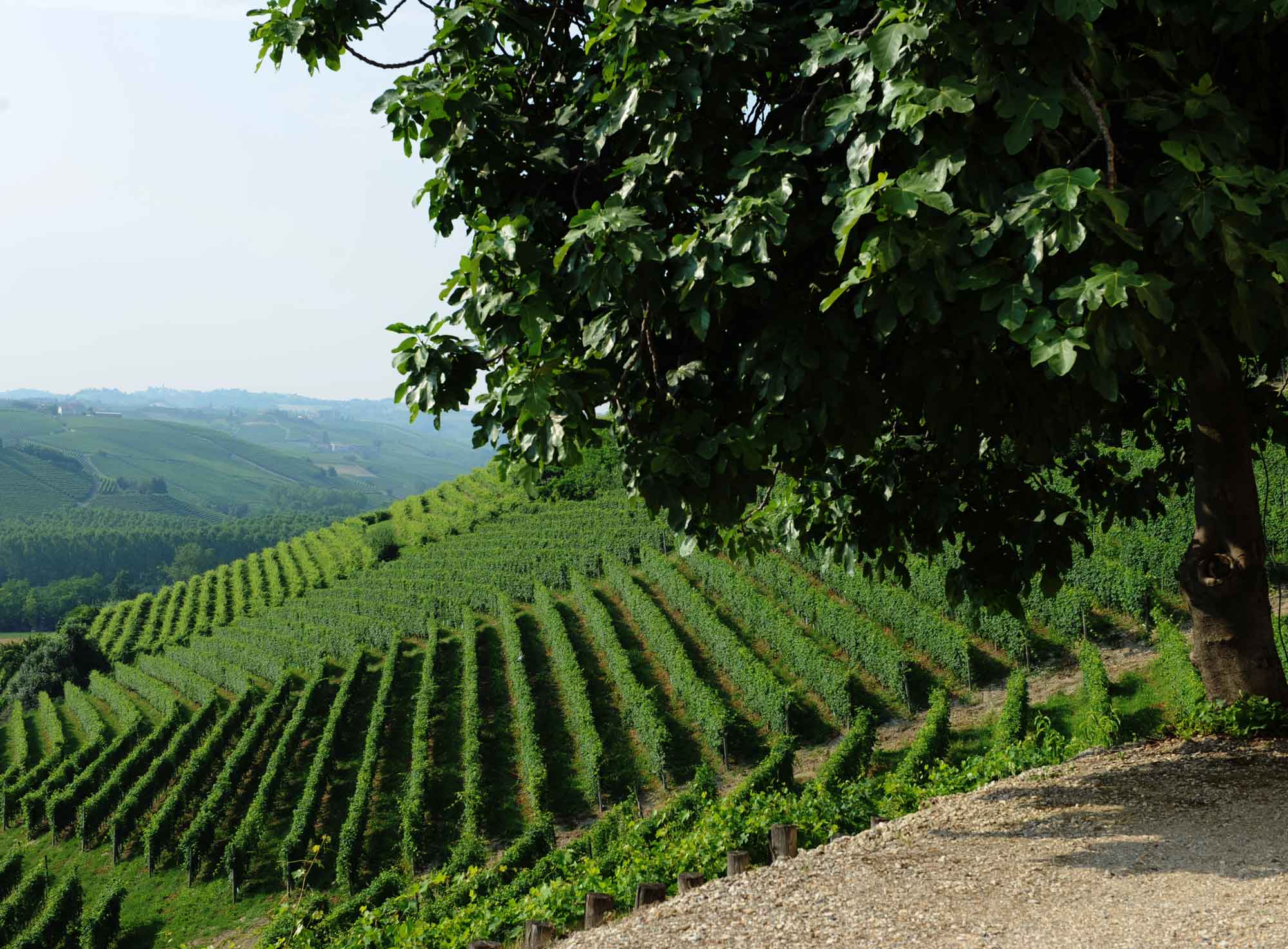Cocchi Barolo Chinato
- Aromatized wine from famous appellation in Italy
- Infused with quinine bark, rhubarb, ginger, cardamom and cocoa
- Round and rich, yet with definition enough to be a digestif
- Pair with dark chocolate
- Serve as you would a high-quality port or Madeira
- The terroir of the family's vines in Scarrone yields a bolder style of Barolo

|

|
Renowned in Piemonte since its introduction in 1891, Cocchi Barolo Chinato is a wine of DOCG Barolo infused with quinine bark, rhubarb, ginger, cardamom, cocoa, and a variety of other aromatic spices. Round and rich, yet with the deep back palate one expects of Barolo, this wine possesses the definition necessary to be an ideal digestif or pairing with dark chocolate. Serve as you would a high-quality port or Madeira, or use in lieu of sweet red vermouth in a luxurious Manhattan. You would not be alone in finding this to be the Rolls Royce (or Maserati) of Italian dessert wines.
(50-59ºF)
(55-59ºF)
(59-64ºF)
About Giulio Cocchi Srl
 Base map data ©2017 GeoBasis-DE/BKG (©2009), Google
Base map data ©2017 GeoBasis-DE/BKG (©2009), GoogleCocchi has produced wine-based aperitifs and traditional Piemontese sparkling wines since 1891. Founder Giulio Cocchi was a young pastry chef from Florence, but relocated to Asti in Italy's Piemonte region and established himself as a winemaker. His Aperitivo Americano, Barolo Chinato and defining vermouths became darlings of the Belle Epoque and the Italian Futurist periods, and by 1913 there were twelve Cocchi tasting bars in the region.
Since 1978, the company has been owned and operated by the Bava Family, themselves highly regarded producers of sparkling wine in Monferrato and Langhe. Today, the winery maintains its artisan character and follows Giulio’s original recipes to craft the distinctive wines that have made Cocchi renowned worldwide. Over the past 30 years, Cocchi has revived the forgotten wine categories Barolo Chinato and Vermouth di Torino, and was integral in establishing the Alta Langa DOCG for traditional Piemontese spumante. Full details
About Quinquina/Chinato
The beneficial properties of the cinchona tree were originally discovered by the Quechua, a people indigenous to Peru and Bolivia, who found it an effective muscle relaxant to calm shivering due to low temperatures. The Quechua would mix the ground bark of cinchona trees with sweetened water to offset the bark’s bitter taste, thus producing tonic water. Jesuit missionaries in the early 1600s brought this back to Rome, where quinine in unextracted form came into use to treat malaria, which was endemic to the swamps and marshes surrounding the city of Rome and responsible for the deaths of several popes, many cardinals and countless common Roman citizens. Quinine was isolated and named in 1820 by French researchers, the name being derived from the original Quechua (Inca) word for the cinchona tree bark, quina or quina-quina, which means “bark of bark” or “holy bark”. Large-scale use of quinine as a malaria preventative started around 1850, consumed in tonics or aperitif wines such as these. With other spices and wines selected to balance, many of these quinine aperitif wines became famous and sought out first as delicious and refreshing aperitif drinks. Full details
RECIPES See all 9 recipes for this product 9 recipes available at https://alpenz.com/productrecipes-chinato.html
Chin-Chin
Build in a double rocks glass filled with ice:
1.5 oz Aperitivo Cappelletti
0.75 oz Cocchi Barolo Chinato
1.5 oz tonic water
Garnish with an orange peel.
Fair Thee Well
(Brian Means, San Francisco)
Stir with ice:
1.5 oz bourbon
0.75 oz Cocchi Barolo Chinato
0.75 oz Pierre Ferrand Dry Curaçao
Strain into a coupe.
Garnish with an orange peel.
Appennini Spritz
(Adapted from Adam Bernbach)
Build in rocks glass with ice:
1 oz Aperitivo Mazzura
2 oz dry sparkling wine
Garnish with orange slice.
Darkside
(adapted from a drink by Adam Bernbach)
Stir with ice:
2 dashes Peychaud’s Bitters
Strain into a coupe.
Garnish with a lime peel and a star anise pod.
Hugo Black
Stir with ice:
1.5 oz rye whiskey
1.5 oz Cocchi Barolo Chinato
Strain into a coupe.
Garnish with an orange peel.
| SKU | Vintage | Region | Origin | Desc | Cepage | % Alc | Size/Pack | Finish | BTL Barcode | Cs Barcode | Cs Wgt |
|---|---|---|---|---|---|---|---|---|---|---|---|
| HZ 9112 | NV | Piemonte | IT | Quinquina/Chinato | Nebbiolo | 16.5% | 750/12 | Cork | 8007117010122 | 8007117011129 | 21.60 kg |
| HZ 9111 | NV | Piemonte | IT | Quinquina/Chinato | Nebbiolo | 16.5% | 500/12 | Cork | 8007117010078 | 8007117016070 | 16.00 kg |



